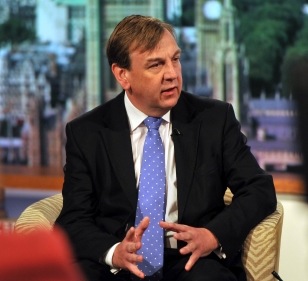UK Media Committee head: ‘Comms Bill no nearer’
May 2, 2013
By Colin Mann
 John Whittingdale, Chairman of the UK House of Commons Chairman of the Culture, Media and Sport Select Committee, has admitted that the coalition government’s proposed Communications Bill is unlikely to feature in the Queens Speech scheduled to be presented to Parliament May 8th. The Queen’s Speech includes issues that are expected to be the subject of Bills or draft legislation in the 2013-14 Parliamentary Session.
John Whittingdale, Chairman of the UK House of Commons Chairman of the Culture, Media and Sport Select Committee, has admitted that the coalition government’s proposed Communications Bill is unlikely to feature in the Queens Speech scheduled to be presented to Parliament May 8th. The Queen’s Speech includes issues that are expected to be the subject of Bills or draft legislation in the 2013-14 Parliamentary Session.
Whittingdale told the Broadcasting Press Guild that the Bill was “no nearer” appearing. Its progress had been delayed during 2012 when the then Secretary of State for Culture, Media and Sport, Jeremy Hunt, arranged a series of seminars dedicated to exploring specific issues and collect evidence to inform the communications review. Hunt’s successor, Maria Miller, seems not to have progressed the matter sufficiently.
In June 2012, Hunt confirmed that the government would introduce a new Communications Bill by the end of the Parliament (i.e., before May 2015) to ensure the UK continued to have a world-beating communications sector that delivered innovative and high-quality content along with safe and efficient services.
Whittingdale also expressed reservations as to the implementation of copyright legislation in any forthcoming legislation, noting that the provisions of the hastily-agreed Digital Economy Act 2010 had – four years on – failed to result in any anti-piracy warning letter being issued. He contended that suggestions made by Professor Ian Hargreaves in his report – Digital Opportunity: A review of intellectual property and growth – that Britain was missing out on potential innovation and growth if the copyright regime was not updated, highlighted “illusory benefits”. He acknowledged that the creative industries were concerned that forthcoming legislation may not contain anti-piracy provisions.
He suggested that the ITV network’s decision not to cover the funeral of former Prime Minister Margaret Thatcher live and in its entirety gave rise to to whether commercial public service broadcasters such as ITV should have certain relaxations from public service obligations. “It raises a bigger question, which is: ‘In the new landscape, do we need to maintain public service obligations on the commercial channels?’ I’m not convinced we do.”
He felt that discussion of alternatives to the Licence Fee method of funding the BBC could begin in 2016 for the subsequent BBC Charter renewal, and suggested that his Committee could consider topics such a s the governance of the BBC in a forthcoming enquiry. He admitted to being “no great fan” of the BBC Trust method, expressing a preference for a board structure, with non-executive directors, which would be externally regulated, “i.e., by Ofcom,” he suggested.
He suggested that BBC Trust Chairman had erred in appointing George Entwistle to the role of Director-General, describing him as the “wrong man”, who was unable to defend the Corporation robustly in the wake of the Jimmy Savile sex abuse scandal. He would only go so far as to say that current appointee Tony Hall had performed “OK” at a recent appearance in front of the Committee, but tellingly admitted to being “impressed” by Tim Davie, who was Acting Director-General.
He also felt it unlikely that there would be a renewed bid for full control of BSkyB from the 21st Century Fox unit that will be formed when News Corp splits the company into two separately quoted entities, given the ongoing phone-hacking scandal in which News Corp’s UK newspapers are implicated.
